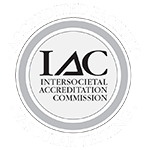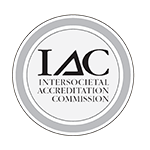
If you are a woman and have chronic pelvic pain, you may have what is known as Pelvic Congestion Syndrome, or PCS.
PCS is a chronic condition that causes pain in the lowest part of the pelvis. Approximately one third of all women will suffer from chronic pelvic pain at some point during their lifetime.
There are many different causes of chronic pelvic pain and this can make diagnosis difficult. Consulting with a trained vascular surgeon, like those on staff at the Vein Institute of NJ, can help determine if the cause is related to PCS.
PCS occurs when blood accumulates in veins deep in the torso. The accumulation of blood causes the veins to bloat and twist. The pain usually worsens when sitting or standing and is relieved with lying down.
Why Does PCS Occur?
PCS affects veins, which are part of the circulatory system that delivers blood. Gravity helps arteries carry blood down towards the lower torso, but gravity makes it hard for veins to carry the blood back up. Little valves in the veins open and close with every heartbeat, and this traps blood in small segments of the vein so it does not flow backwards. Sometimes the valves can fail, and this allows blood to flow backwards and accumulate in veins surrounding the ovaries. The accumulation of blood causes the veins to become bloated, or "congested." These congested veins press against nearby nerves to cause pain.
PCS Symptoms
Symptoms typically appear after a woman becomes pregnant and may continue after pregnancy. It is believed that hormonal changes and weight gain along with anatomic changes in the pelvic structure during pregnancy can cause an increase of pressure within the ovarian veins. This may weaken the vein wall leading to dilatation and blood build up.
Symptoms of PCS may include any of the following:
- Dull, aching or “dragging” pain in the pelvis or lower back, particularly on standing and worse around the time of one’s menstrual period
- Irritable bladder that sometimes leads to stress incontinence
- Irritable bowel (recurrent abdominal pain and diarrhea alternating with periods of constipation)
- Deep dyspareunia (discomfort during or after sexual intercourse)
- Vaginal or vulvar varicose veins (bulging veins around the front passage)
- Varicose veins of the top of the inner thighs or the back of the thighs
What Can You Do to Treat PCS?
The first step is diagnosing it. Some doctors may fail to look for the condition, so the pelvic congestion syndrome often goes unnoticed. However, our staff at the Vein Institute of NJ stays atop these medical conditions and utilizes advanced imaging technology, such as ultrasound and MRI to help diagnose PCS.
Treatment usually involves a procedure known as embolization, in which a doctor uses special techniques to close the affected vein to prevent blood from entering the blood vessel. Embolization "empties" the varicose vein and relieves pressure on nearby nerves, effectively alleviating the pain of PCS.
If you think you have PCS, talk with one of our board-certified vascular doctors. Pelvic congestion syndrome is an uncomfortable condition that can negatively affect your quality of life. Fortunately, treatment is available for PCS and you can live free from pelvic pain.







_2.jpg)